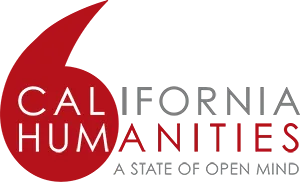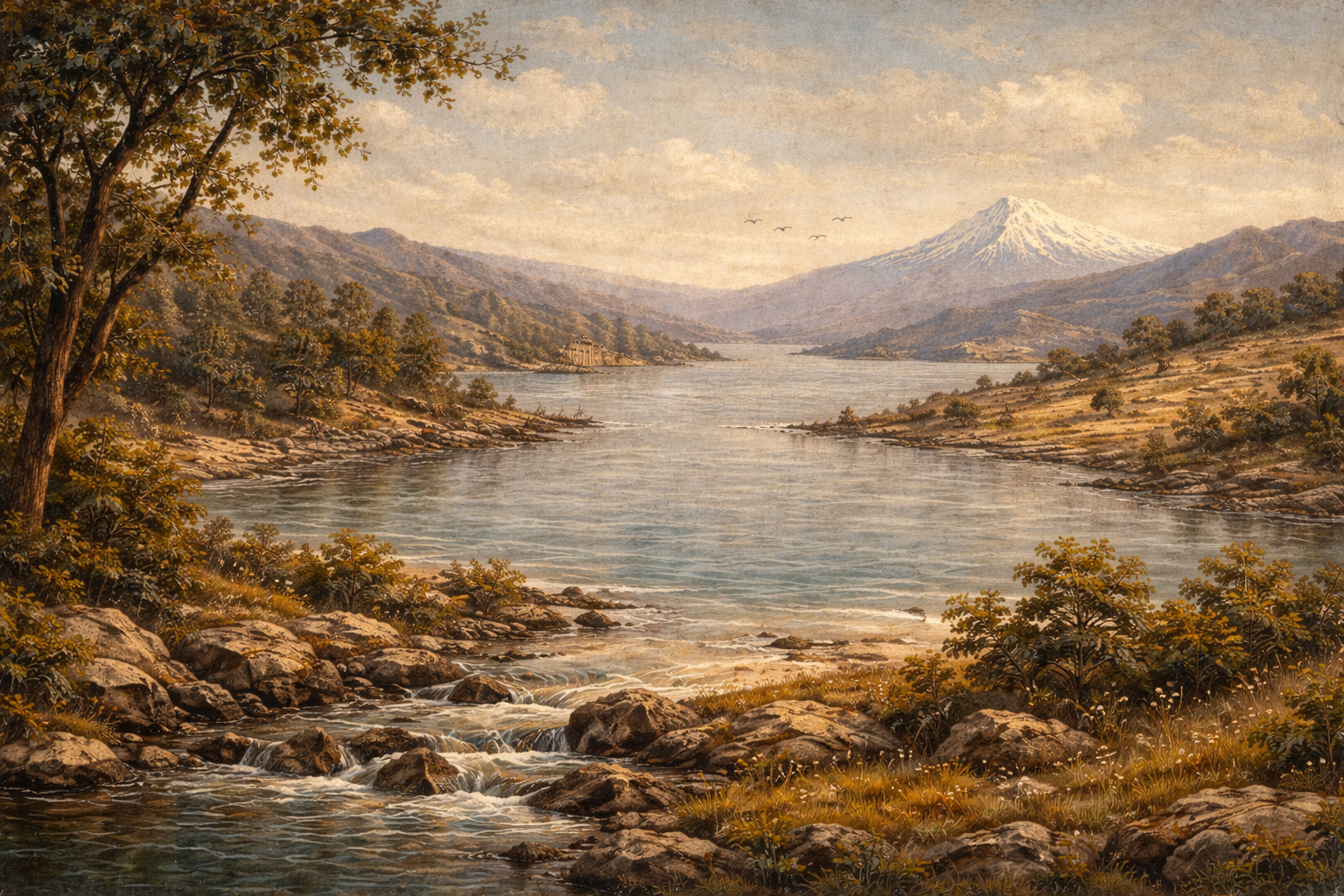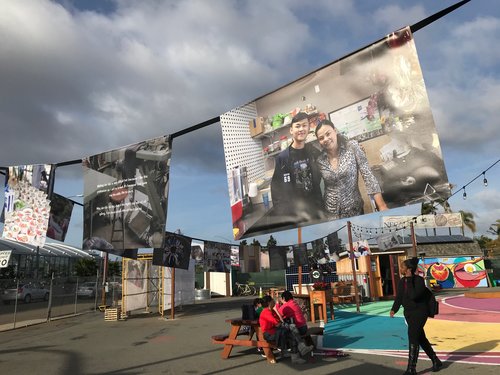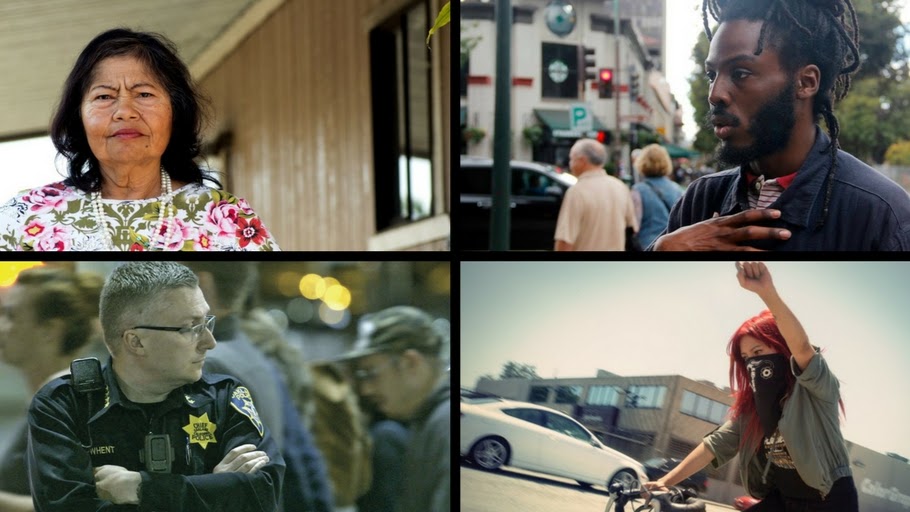Leading into the national 2012 elections, Searching for Democracy is a two-year initiative that provides Californians with various ways to explore how the humanities can provide insight and opportunities to have conversations that matter about the nature, state, and needs of our democracy. Cal Humanities and its partners will explore these complexities—through a series of local, regional, and statewide activities that have humanities at their core—to accomplish a greater understanding of what is needed to sustain a healthy democracy in an increasingly interdependent world.
Students, families and people from all walks of life will explore—online and in person—what discoveries and lessons lie in works of fiction and nonfiction, provocative cultural exhibits, and public conversations. This website will be an online hub for all activities, where participants in events, readers of the initiative’s books, and people new to our effort can learn more and share what they have discovered.
You can watch videos from some of our Searching for Democracy programs—and the forum that started it all—HERE on UCTV.
Programs
How do we create a healthy democracy in a time of political polarization? How do we carry out our responsibilities as citizens in an increasingly interdependent world?
To help us answer these questions—together—Cal Humanities has launched Searching for Democracy, a statewide initiative designed to animate public conversation on the very nature of democracy through a wide range of public programs leading into the 2012 elections and beyond. With partners from across the state in communities large and small, we will provide Californians with many different ways to explore how the humanities provide insights and opportunities to have conversations that matter about the needs and state of our democracy.
How do we forge a common good in a state of uncommon diversity of opinion, values, and cultures?
Searching for Democracy Programs Include:
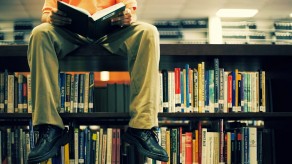 California Reads
California Reads
How do we come together to talk about things that matter to us all? California Reads provides a springboard to think about and discuss ideas that are critical to life in our state using a diverse set of five thought-provoking books.
California Reads is a new program of Cal Humanities developed in partnership with the California Center for the Book and the California State Library. It invites Californians from all walks of life throughout our state to participate in reading and discussion programs and related activities hosted by libraries, schools, colleges, bookstores and other community institutions. Click HERE to see descriptions of all the California Reads library projects.
To coincide with our two-year statewide initiative to animate a public conversation on democracy and civic values leading into the 2012 elections, our current theme is Searching for Democracy. Programming aligned with this theme will be conducted through the end of November 2012 by libraries and collaborating entities throughout the state. The big idea? To stimulate a thoughtful reflection of, and lively discussion among, friends and neighbors, families and strangers about the past, present, and future of democracy.
Five thought-provoking books were chosen from a pool of over 300 titles nominated by members of the public, and based upon the final recommendations of an advisory group of librarians, authors, scholars, publishers and critics.
CALIFORNIA READS BOOK SELECTIONS:
The Penguin Guide to the United States Constitution: A Fully Annotated Declaration of Independence, U.S. Constitution and Amendments, and Selections from The Federalist Papers, by Richard Beeman. Annotated by one of the nation’s foremost Constitutional scholars, this compact edition of our nation’s founding documents provides text and context for readers seeking to understand the framework of our democracy as well as its meaning, past and present.
Farewell to Manzanar, by Jeanne Wakatsuki Houston and James D. Houston. A heartbreaking and compelling memoir about the Japanese American internment experience as seen through the eyes of young girl, this personal story bears witness to a failure of American democracy.
A Paradise Built in Hell: The Extraordinary Communities That Arise in Disaster, by Rebecca Solnit. A masterwork of narrative nonfiction by a contemporary California writer reaches some surprising conclusions about our need for community and common purpose, which she argues are fundamental to democratic forms of social and political life.
It Can’t Happen Here, by Sinclair Lewis. This underappreciated classic by one of America’s greatest novelists, first published in 1935, imagines a chillingly undemocratic America. It details the rise of a populist politician as he creates a fascist regime, and reminds us of the fragility of our democratic institutions.
Lost City Radio, by Daniel Alarcón. A haunting novel by a young California writer explores the aftermath of a traumatic civil war in a fictitious South American country, and raises questions about the importance of historical knowledge, collective memory, and public access to information in a democratic society.
GET INVOLVED! CALIFORNIA READS RESOURCES:
Cal Humanities and partners have developed resources to support participation by libraries, schools, colleges and universities, museums, booksellers, and community organizations and government agencies, along with interested individuals. Discussion guides for each book provide an overview of the book and author, a series of discussion questions to begin conversations, a brief author interview, bibliographies, and other supplemental resources for interested readers. A K-12 curriculum guide for each book is also available (see below) to further support classroom activities. All of these materials, along with additional resources and information about Searching for Democracyand California Reads public programs and activities at libraries and other community venues, can be found here our website. Check our calendar for upcoming events in your area.
Interested in hosting your own book discussion? Download and share our California Reads discussion guides.
[tabs type=”horizontal”]
[tabs_head]
[tab_title] DISCUSSION GUIDES [/tab_title]
[tab_title] CURRICULUM GUIDES [/tab_title]
[/tabs_head]
[tab]
DISCUSSION GUIDES
Interested in hosting your own book discussion? Download and share our California Reads discussion guides.
- FAREWELL TO MANZANAR
- THE PENGUIN GUIDE TO THE UNITED STATES CONSTITUTION
- A PARADISE BUILT IN HELL
- IT CAN’T HAPPEN HERE
- LOST CITY RADIO
- LOST CITY RADIO, SPANISH VERSION
[/tab]
[tab]
CURRICULUM GUIDES
Interested in California Reads book-related resources for your classroom? Download and share our California Reads curriculum guides.
- FAREWELL TO MANZANAR
- THE PENGUIN GUIDE TO THE UNITED STATES CONSTITUTION
- A PARADISE BUILT IN HELL
- IT CAN’T HAPPEN HERE
- LOST CITY RADIO
- WATCH A WEBINAR OVERVIEW OF CURRICULUM RESOURCES
[/tab]
[/tabs]
The California Reads program is a project of Cal Humanities, supported in part by the U.S. Institute of Museum and Library Services under the provisions of the Library Services and Technology Act, administered in California by the State Librarian.”
We thank the California Center for the Book and initiative partners for working closely with us on this round of California Reads.
For more information about this grant and resource program, please contact Senior Program Officer Felicia Kelley.
Community Stories
Is there one California story—or are there many? Community Stories (formerly the California Story Fund) gives expression to the extraordinary variety of histories and experiences of California’s places and people. We hope these stories will help us all find our commonalities, appreciate our differences, and learn something new about how to live well together. Click HERE to see a list of past and present Community Stories projects.
Engaging thinkers throughout California are talking about what makes our democracy tick.
This program is presented in partnership with Zócalo Public Square.
PUBLIC CONVERSATIONS WITH ZÓCALO
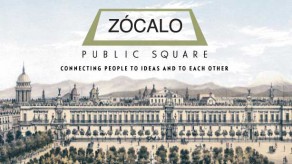 How do we cultivate a democratic culture? Is social isolation a threat to civic life? What will happen when the Millennials take charge? Is our democracy broken or is all the shouting a sign that it’s working as it should?
How do we cultivate a democratic culture? Is social isolation a threat to civic life? What will happen when the Millennials take charge? Is our democracy broken or is all the shouting a sign that it’s working as it should?
Cal Humanities and Zócalo Public Square have joined forces, bringing top public thinkers to communities across the state to explore issues vital to our democracy. Join the conversations. Check out our calendar to find upcoming Searching for Democracy: Public Conversations events.
TEACHING DEMOCRACY
How do we learn to exercise the rights and responsibilities of citizenship? Do our schools teach us that the system works—or what to do if it doesn’t?
This program is presented in partnership with theCalifornia History-Social Science Project (CHSSP).
Cal Humanities has partnered with CHSSP—the state’s K-16 collaborative dedicated to providing the highest quality history instruction—to improve how California’s teachers teach and their students learn about living in a democratic society. Our Teaching Democracy program offered a series of free webinars featuring renowned intellectuals and teacher leaders who address questions critical to understanding the extent and limits of democracy. The sessions focused on current scholarship and innovative methods that can be useful in classrooms as well as living rooms.
Teachers, history buffs, and anyone with an inquisitive mind—we invite you to use any and all of the resources below in your classrooms (or living rooms)!
RESOURCES AND WEBINAR RECORDINGS
NO TAXATION WITHOUT REPRESENTATION?
Alan Taylor, Professor of History, UC Davis
Kate Bowen, Patwin Elementary School
Click here for Alan Taylor’s PowerPoint presentation with audio.
Click here for Kate Bowen’s PowerPoint presentation with audio.
- TEACHING DEMOCRACY: NO TAXATION WITHOUT REPRESENTATION? LESSON PLANIMAGES, FROM THE LIBRARY OF CONGRESS AND THE COLONIAL WILLIAMSBURG FOUNDATION VIRGINIARESOLUTIONS ON THE STAMP ACT, 1765 (2005, WW NORTON PRESS)RESOLUTIONS OF THE STAMP ACT CONGRESS, 1765 (2010, PRENTICE HALL)
THE POWER OF THE PRESIDENCY
Daniel Sargent, Assistant Professor of History, UC Berkeley
Jenna Rentz and Bryan Shaw, Mount Diablo High School
Click here for Daniel Sargent’s PowerPoint presentation with audio.
Click here for Jenna Rentz and Bryan Shaw’s PowerPoint presentation with audio.
TEACHING DEMOCRACY: THE POWER OF THE PRESIDENCY LESSON PLAN
- THE CONSTITUTION OF THE UNITED STATES (1787), FROM THE NATIONAL ARCHIVES
ALEXANDER HAMILTON, THE FEDERALIST, NO. 69 (1787), FROM THE LIBRARY OF CONGRESS
UNITED STATES V. CURTISS-WRIGHT (1936), FROM FINDLAW
ROOSEVELT MESSAGE TO CONGRESS (1940), FROM THE AMERICAN PRESIDENCY PROJECT
YOUNGSTOWN CO. V. SAWYER (1952), FROM FINDLAW
“THE LEGALITY OF UNITED STATES PARTICIPATION IN THE DEFENSE OF VIET-NAM” (1966), FROM HEINONLINE
WHAT DID THE CONSTITUTION ORIGINALLY MEAN?
Jack Rakove, William Robertson Coe Professor of History and American Studies/Professor of Political Science and of Law, Stanford University
Jennifer Brouhard, Glenview Elementary School
Click here for Jack Rakove’s PowerPoint presentation with audio.
Click here for Jennifer Brouhard’s PowerPoint presentation with audio.
- TEACHING DEMOCRACY: WHAT WAS THE PURPOSE OF THE PREAMBLE? LESSON PLAN
THE CONSTITUTION OF THE UNITED STATES (1787), FROM THE NATIONAL ARCHIVES
VIRGINIA CONSTITUTION & DECLARATION OF RIGHTS (1776), FROM THE LIBRARY OF VIRGINIA
RESOLUTIONS OF CONCORD, MA, TOWN MEETING (1776), FROM TEACHINGAMERICANHISTORY.ORG
VIRGINIA STATUTE OF RELIGIOUS FREEDOM (1786), FROM THE LIBRARY OF VIRGINIA
JAMES MADISON’S LETTER TO THOMAS JEFFERSON, OCTOBER 24, 1787, FROM LIBERTY FUND, INC.
JAMES MADISON’S LETTER TO THOMAS JEFFERSON, OCTOBER 17, 1788, FROM LIBERTY FUND, INC.
SHOULD AMERICA HAVE A KING?
Caroline Winterer, Professor of History, Stanford University
Jasmin Brown, César Chavez Middle School
Click here for Caroline Winterer’s PowerPoint presentation with audio.
Click here for Jasmin Brown’s PowerPoint presentation with audio.
- TEACHING DEMOCRACY: HOW DID PATRIOTS JUSTIFY THEIR SEPARATION FROM GREAT BRITAIN? LESSON PLAN
THE DECLARATION OF INDEPENDENCETHOMAS PAINE’S COMMON SENSE
WHO IS A CITIZEN?
Clarence Walker, Professor of History, UC Davis
Jah-Yee Woo, Oakland Unified School District
Click here for Clarence Walker’s PowerPoint presentation with audio.
Click here for Jah-Yee Woo’s PowerPoint presentation with audio.
- TEACHING DEMOCRACY: WHAT WERE THE CHALLENGES TO AFRICAN AMERICAN CITIZENSHIP AFTER THE CIVIL WAR? LESSON PLAN
ANDREW JACKSON’S ANNUAL MESSAGE, FROM OURDOCUMENTS.GOVEXECUTIVE ORDER 9066, FROM THE NATIONAL ARCHIVES
INDIAN REMOVAL ACT OF 1830, FROM THE LIBRARY OF CONGRESSTHE AREAS OF RACIAL DISCRIMINATION (1988, DORSEY PRESS)
UNCLE TOM’S CABIN EXCERPT (1962, COLLIER BOOKS)
MORE FROM SEARCHING FOR DEMOCRACY (2012)
WHEREVER THERE’S A FIGHT EXHIBITION
Learn about the stories of California’s unsung civil rights heroes and heroines.
This program is presented in partnership with Exhibit Envoy.
Wherever There’s A Fight: A History of Civil Liberties in California tells the hidden stories of unsung heroes and heroines throughout California who stood up for their rights in the face of social hostility, physical violence, economic hardship, and political stonewalling. Based on the 2009 Heyday book by Elaine Elinson and Stan Yogi, the exhibition spans the period from the Gold Rush to the post-9/11 era, telling the stories of unsung heroes and heroines throughout California who stood up for their rights—and all of ours as well.
To make this important California history accessible to as many as possible, Cal Humanities has partnered with Exhibit Envoy to create an easy-to-install travelling banner exhibition (in English and Spanish) that is touring libraries, colleges, and museums across the state.
SEE THE EXHIBIT
See the exhibit at a venue near you! Check the events calendar here on our website for upcoming exhibition dates and location information, or click here to find dates and locations as well as information about how to bring the exhibition to your town.
LEARN MORE
Interested in learning more about the heroes, heroines, events, eras, and civil liberties struggles covered in the Wherever There’s a Fight exhibition? Check out this great resource guide from Exhibit Envoy, which lists a variety of supplementary materials including books, films, websites, curricula, and activities.
Dig deeper and learn more at www.wherevertheresafight.com.
PARTNERS
Cal Humanities is honored to be partnering with this diverse array of organizations to create different programs of the Searching for Democracy initiative:
California Center for the Book is part of a network of Centers for the Book in every state of the Union, all affiliated with the Center for the Book in the Library of Congress. A non-profit reading promotion agency that provides services and resources to librarians throughout the state, the California Center for the Book develops statewide programs that celebrate California’s rich literary heritage, encourage reading and discussion, and promote libraries as centers for community engagement and lifelong learning.
California History-Social Science Project is a K-16 collaborative dedicated to increasing student achievement in history-social science by developing materials to teach historical thinking, providing professional development to teachers, and partnering with low-performing schools. A special focus of their work has been meeting the needs of English learners, native speakers with low literacy, and students from economically disadvantaged communities in order to reduce the achievement gap. CHSSP works with more than 4,000 teachers at approximately 1,500 schools annually.
Exhibit Envoy (formerly the California Exhibition Resources Alliance, or CERA) provides high quality, affordable, traveling exhibitions and professional services to museums and other host venues throughout California. Its mission is to build new perspectives among Californians, create innovative exhibitions and solutions, and advance institutions in service to their communities. Created in 1988 by Cal Humanities as a consortium of small community‐based museums, CERA became a separate non‐profit organization in 2002 and changed its name in 2011.
Zócalo Public Square blends on-the-ground events and on-line journalism to connect people to ideas and to each other in an open, accessible, non-partisan and broad-minded spirit. Through a web publication, lectures, panels, screenings, and conferences, Zócalo explores ideas that enhance our understanding of citizenship and community—the forces that strengthen or undermine human connectedness and social cohesion. Zócalo is committed to welcoming a new, young, and diverse generation to the conversation.
Searching for Democracy and its many programs are made possible with the generous support of our funders—the California State Library, which has provided assistance from the U.S. Institute of Museum and Library Services under the provisions of the Library Services and Technology Act, and the National Endowment for the Humanities, through its Federal-State Partnership program as well as the Chairman’s Special Initiative: Bridging Cultures. Additional funding has been provided by The BayTree Foundation, the Seedlings Foundation, and the Whitman Institute.
The opinions expressed herein do not necessarily reflect the position or policy of the National Endowment for the Humanities, the US Institute of Museum and Library Services, the California State Library, Cal Humanities and/or its funders and no official endorsement by any of these institutions should be inferred.
